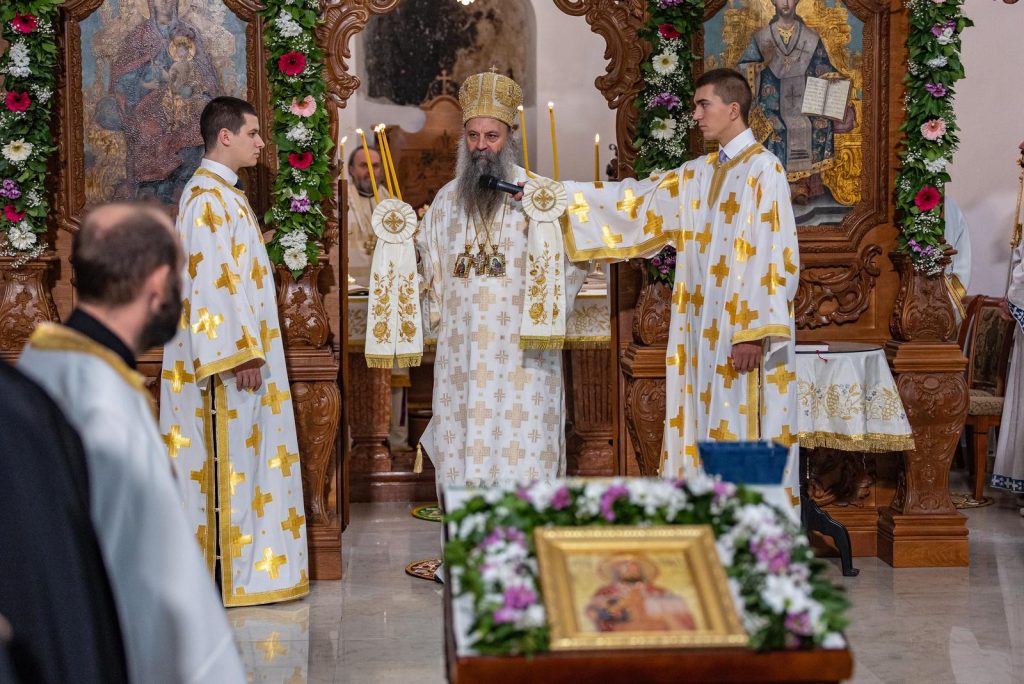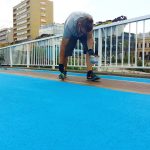As Index writes, he called on the believers to pray for the sacrifices of others. “They are our role models, and those who commit violence against helpless people, whether in war or peace, are worthy of all condemnation and contempt. That is why I invite you today to light a candle for all our suffering Orthodox brothers and sisters, but also to light a candle for all the innocent Roman Catholic Croats who have suffered; let us pray for our brothers and sisters who have suffered, but also for the Roman Catholic Croats who have suffered,” urged Porfirije, who served the holy liturgy in the presence of numerous Serbian Orthodox bishops in the Vukovar Cathedral of the Holy Father Nikola, where he consecrated the renovated temple and Parish Hall.
He called on the believers to pray for every sacrifice, for every innocent victim in Vukovar and the city of Vukovar itself because, he said, prayer and Christian forgiveness are the only way to heal all wounds. He asserted that people live in Vukovar whose differences are small and insignificant, there are incomparably more similarities than differences, and the Christian faith brings them together but also binds them.
“When in prayer for our sacrifices, we also remember our martyred neighbours, Catholic Croats, God will rejoice over us,” noted the Serbian patriarch.
He said he constantly lights a wax candle in his heart for the victims in Glina, Varivode, Grubori, and other places where Serbs suffered. “In the same way, I pray and light a candle for those who perished at Ovčara, Škabrnja, Lovas, Sotin, and many other places of execution.”
“We also pray for all those who disappeared from 1991 to 1995, in the terrible and unfortunate war in these areas, regardless of which nation they belonged to,” he said in his address to the believers, inviting them to join him in prayers.
There is no other way but prayer and forgiveness, he asserted. “As children of God, we must not leave it to those who have levers of power from this world to solve the issues of our lives, arrange our mutual relations, past, present and future because,” as he said, “at the very least it can be said that the goals of these leverage different from the goals of the Gospel.”
At the end of the liturgy, Patriarch Porfirij was presented with the award of the Holy Despot Stefan Štiljanović, patron of the Diocese of Osijekopolska and Baranja. Decorations were also given to other deserving people, including SDSS president Milorad Pupovac and one of the party’s founders and longtime president Vojislav Stanimirović.
The Cathedral of Saint Nicholas was built in 1737. On the night between September 18 and 19, 1991, the temple was severely damaged in an explosion. The renovation lasted from 2009 to 2014 and was financed entirely by the Croatian government.
The comments of Vukovar mayor Ivan Penava
As Index further reports, after commemorating the 31st anniversary of the death of Major General Blago Zadro, the mayor of Vukovar Ivan Penava was asked to comment on Patriarch Porfiri’s message that it is necessary to pray for all victims from both sides, without distinction. He stated that the call to pay homage to innocently killed victims is a step in the right direction and that he welcomes it, but that the situation in which the Serbian Orthodox Church decided to promote the war criminal Vojislav Šešelj remains unacceptable.
“As a believer, I respect all religious institutions, including the Serbian Orthodox Church, but everyone must be aware that the moment you promote the war criminal Vojislav Šešelj, you close the door and that this is a story that is not welcome in Vukovar, said Penava.
He points out that “he would like Zagreb to become more aware that the story of Vukovar is also the story of Croatia” because he believes that it is not good for Vukovar to always be “on some sort of buffer or advanced position, while everyone else suffers from political correctness.”
“If there must be a line below which we do not go, I think that everyone in Croatia will agree that Vojislav Šešelj and the Chetniks are the line that we will never agree to. I hope this attitude is a generally accepted value in Croatia because otherwise today’s commemoration of Blago Zadro loses its meaning, said Penava.
He wished the citizens of the Republic of Croatia of Serbian and any other nationality to feel good in the Croatian state, and to respect their religious customs and culture, but that all of this “has nothing to do with Greater Serbian hegemony, aggression against Croatia, pretensions towards other people’s territory and all other things which we witnessed 30 years ago”.
For more, make sure to check out our dedicated Lifestyle section.










